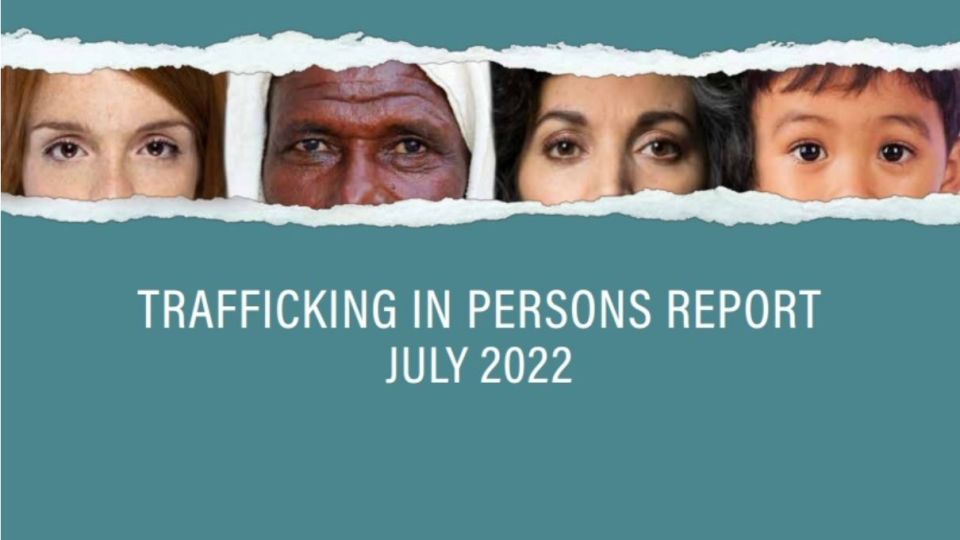July 21, 2022
SEOUL – South Korea was downgraded in a US annual human trafficking report by a tier for the first time in 20 years. As the US State Department report pointed out, Korea did not “fully” meet the minimum standards for the elimination of trafficking. Seoul said it would review its past year’s effort and work to provide explanations if necessary.
Although Seoul authorities have made no official assessment of the downgrade, officials have reportedly hinted at insufficient communications regarding the issue between Seoul and Washington last year as a possible factor in the change.
In the 2022 Trafficking in Persons Report released on Tuesday (US time), South Korea was placed on Tier 2, down by one from the highest classification. South Korea had maintained a place in Tier 1 since 2002.
In Tier 2, 132 other nations, including Japan, Norway, Switzerland and Brazil, were included. The US was placed in Tier 1, along with 29 countries, including Germany, Britain, France, Sweden and Belgium.
North Korea remained in the lowest category of Tier 3 along with other countries, including China and Russia.
The US has been releasing the report since 2001, assessing the government efforts around the world to combat human trafficking and protect victims. Countries are sorted into one of four tiers — Tier 1, Tier 2, Tier 2 watchlist and Tier 3. In this year’s report, which is the 22nd installment, 188 countries and territories have been included.
Tier 2 countries are considered to have not fully met the minimum standards for eliminating trafficking but are making significant efforts to do so.
The report said the South Korean government had made several efforts to combat the issue. These efforts included introducing training for prosecutors, training for seafarers’ labor inspectors and initiating the process of drafting new victim identification guidelines and a national anti-trafficking action plan.
These efforts, however, were “not serious and sustained when compared to the efforts during the previous reporting period, even when considering the impact of the COVID-19 pandemic, if any, on the government’s anti-trafficking capacity,” the report said.
According to the report, Seoul initiated fewer prosecutions than in 2020. Also, it did not take steps to address the issue of penalizing or deporting foreign sex trafficking victims for unlawful acts they were forced to do by the traffickers.
“Despite reports of the prevalence of labor trafficking among migrant workers in Korea, especially in Korea’s fishing fleet, the government did not report identifying any foreign forced labor victims,” the report also said.
“Officials did not consistently utilize victim identification guidelines, and courts sentenced most criminals convicted for trafficking-related crimes to less than one year of imprisonment, fines, or suspended sentences.”
The report assessed the government efforts from April 2021 to March this year, the last year of tenure for the Moon Jae-in administration. South Korea had maintained the Tier 1 position from 2002 until last year. The first report was released in 2001, and Korea was placed in Tier 3.
Seoul’s Foreign Ministry said the downgrade in assessment appears to show the US intention to encourage Korea to enforce stronger punishments against traffickers and to strengthen victim identification and protection efforts.
“We will actively communicate with the US in our efforts to tackle human trafficking,” a foreign ministry official said.
Differences in legal systems and sentencing processes with the US could also have influenced the assessment, so the ministry will communicate further, the official added.
North Korea remained in Tier 3. The report said Pyongyang “does not fully meet the minimum standards for the elimination of trafficking,” even considering the impact of the COVID-19 pandemic.
“There was a government policy or pattern of human trafficking in prison camps as part of an established system of political repression, in labor training centers, in the mass mobilizations of adults and children, and through its imposition of forced labor conditions on DPRK overseas workers,” the document said, referring to North Korea by its official name, the Democratic People’s Republic of Korea.
“The government used proceeds from state-sponsored forced labor to fund government functions and other illicit activity.”
Over the assessment, Pyongyang lashed back, saying the US is actually the stronghold of human trafficking.


